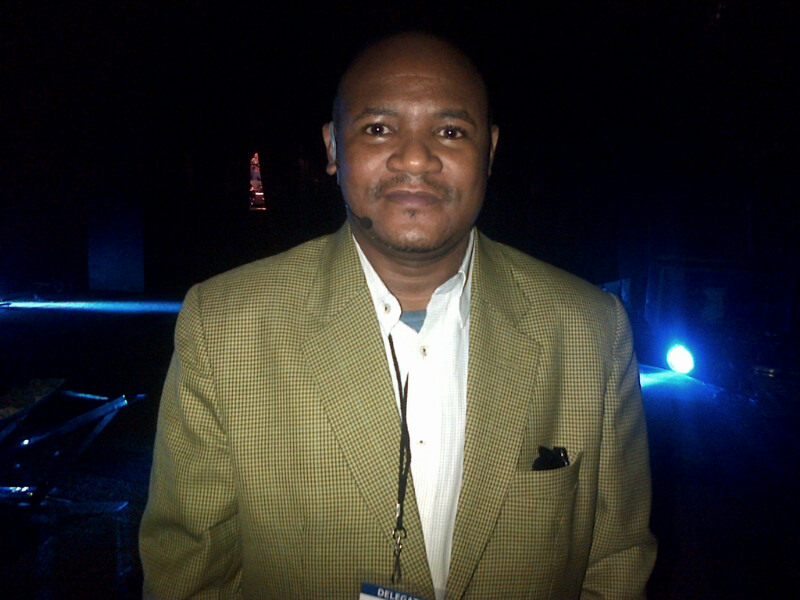These days go to any local and international meeting, the song is the same “a call for African Countries to raise domestic financing to fund health sector”. One question that is hardly ask is “how” amidst dwindling financial resources. That’s was the question I asked during the roundtable interactive meeting convened by African Union and Global Fund for HIV, Tuberculosis and Malaria in Addis, Ethiopia on Tuesday 14th July 2015.
For example Nigeria is unable to co- fund its 2015 vaccine procurement, World Bank had to bail out the country with a soft loan. We are unable to procure Reproductive Health and Family Planning Commodities in line with the FP2020 London Summit Commitment, international development partners are helping us out with that. Our health budget over the last 7 years as compared to the national budget is never above 8%, far from the 15% Abuja declaration and our per capita spending on health annually isn’t up to half of the standard requirement of $86. So whenever I hear international partners recommending that Africa and/or Nigeria should commit domestic finances to co- fund its health sector, I always ask the question “HOW”, this is because Iam not sure our government understand the meaning of such.
African heads of states and their representatives almost all of them at the just concluded 3rd United Nations Conference on Financing for Development in Addis were almost begging international community to support them with aid to finance sustainable development. One civil society activist said “that is the lowest our leaders could descend to embarrass Africa”.
Coming back to the meeting convened by the Africa Union in collaboration with Global Fund, UNAIDS and UN Sustainable Development Solutions Network, in his opening speech HE. Dr. Mustapha Sidiki Kaloko, Commissioner for Social Affairs, African Union Commission highlighted that “for the first time in the history of global health, Africa is mobilising more domestic resources than foreign development investments in health. In the last four years, African countries have increased their domestic resources to respond to HIV by 150 percent. Between 2006 and 2011 global domestic investment doubled spending on HIV, TB and malaria. In 2012, domestic spending for HIV from low-and middle-income countries represented 53 percent of all global HIV resources. This is anticipated to increase with the recent acceleration of commitments to universal health coverage.”
The meeting recognized that Africa have positive stories of the tremendous results that have been achieved on the continent through shared responsibility by African countries and global solidarity. Access to HIV treatment in Africa has increased more than 100-fold. In less than a decade 10 million people are now on treatment. New HIV infections in Africa south of the Sahara declined by 33%. AIDS-related deaths in Africa south of the Sahara has declined by 30%. Increased political commitment and expanded funding have helped to reduce malaria incidence by 31% in Africa. An estimated 337 million malaria cases and 3 million deaths were averted in Africa.
The meeting also explored how African governments can further increase Domestic Financing for Health by emphasising the urgency for accelerating innovative domestic financing for health. Notable mechanisms that have been put in place include shifting existing budgets toward spending on the diseases or an alcohol or airline levy; new initiatives to diversity funding sources like boosting private sector commitments and increased global partnership and solidarity to ensure these needs are met.
The meeting also observed that the recent 2013 Abuja+12 Declaration demonstrate renewed leadership on health. As Africa’s health policy instruments expire in 2015 coinciding with the end of the Millennium Development Goals the African Union has started the process of consultations to come up with catalytic actions to end AIDS, TB and Malaria by 2030. African Heads of State and Government decided at the Johannesburg Summit in June this year to extend the AU Roadmap to 2020 to ensure that it is fully implemented. The Roadmap places health financing at the centre of key actions needed to end AIDS, TB and Malaria. African countries are closer to reaching the agreed Abuja target of allocating 15% of their total government expenditure to health. Could all these efforts and progress in other African countries be the same with respect to Nigeria? The answer is NO. We are far from raising domestic finances to fund our health sector.
In an article that I wrote on 20th January 2015 titled ‘Who will rescue People Living with HIV in Nigeria?’ I reported that at a media roundtable of Saturday 10th January 2015 the executive member of the Network of People Living with HIV in Nigeria (NEPWHAN) informed the gathering that the “group has a membership of 1,030 and their intervention was to reinforce their message with evidence that many of their members have stopped treatment due to demand for payment for consultation, consumables, lab tests, enrolment etc. They informed us that in many centers enrollment now cost N5000, consultation cost N2000 and drug pick up – N1000 per month and equally people living with HIV/AIDS are now asked to pay for laboratory test and consumables which hitherto all these were free as covered by the joint effort of international development partners and Nigerian Government.”
This is just one clear message that if the donor funding for any intervention in Nigeria suffers any hitch, the gains over the time almost always begin to reverse.
1st published in Daily Trust Newspaper of 28th July 2015 by Dr Aminu Magashi Publisher Health Reporters (healthweekly@yahoo.com)


